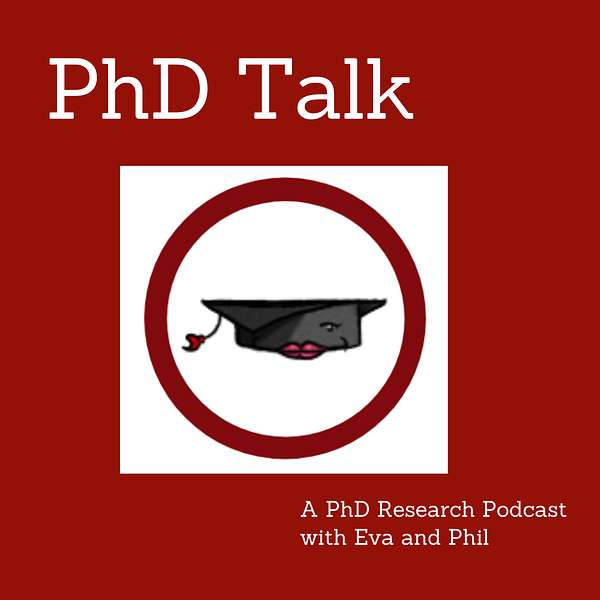
PhD Talk
A podcast in which we discuss PhD life, research mechanics, and the tools for doing research.
PhD Talk
Work-life balance research and practice - Ep. 46
In this episode, we discuss the topic of work-life balance. First, we look at findings from the literature on this topic, which Eva has used to write an encyclopedia entry about (and since this entry is a tiny part of a large project, it will take time before it will see the light of publication).
We look at findings from the literature on work-life balance satisfaction in general, the history of the topic, and findings on work-life balance in higher education, with a special focus on the groups who report the lowest levels of work-life balance satisfaction and on the classed, racialized, and gendered dimensions of work-life balance and work-life satisfaction.
Finally, we discuss our experience of work-life balance, our successes and struggles, and how work-life balance in academia can be improved.
References
- Armstrong, J. 2006. "Beyond 'juggling' and 'flexibility': Classed and gendered experiences of combining employment and motherhood." Sociological Research Online 11 (2):119-134. doi: 10.5153/sro.1277.
- Beigi, M., M. Shirmohammadi, and S. Kim. 2016. "Living the academic life: A model for work-family conflict." Work 53 (3):459-468. doi: 10.3233/WOR-152173.
- Blazovich, J. L., K. T. Smith, and L. Murphy Smith. 2018. "Mother-friendly companies, work-life balance, and emotional well-being: Is there a relationship to financial performance and risk level?" International Journal of Work Organisation and Emotion 9 (4):303-321. doi: 10.1504/IJWOE.2018.097153.
- Dilmaghani, Maryam, and Vurain Tabvuma. 2019. "The gender gap in work–life balance satisfaction across occupations." Gender in Management: An International Journal 34 (5):398-428. doi: 10.1108/GM-09-2018-0109.
- Johnston, E., and A. Johnson. 2017. "Balancing life and work by unbending gender: Early American women psychologists’ struggles and contributions." Journal of the History of the Behavioral Sciences 53 (3):246-264. doi: 10.1002/jhbs.21862.
- Kachchaf, R., A. Hodari, L. Ko, and M. Ong. 2015. "Career-Life Balance for Women of Color: Experiences in Science and Engineering Academia." Journal of Diversity in Higher Education 8 (3):175-191. doi: 10.1037/a0039068.
- Keeney, Jessica, Elizabeth M. Boyd, Ruchi Sinha, Alyssa F. Westring, and Ann Marie Ryan. 2013. "From “work–family” to “work–life”: Broadening our conceptualization and measurement." Journal of Vocational Behavior 82 (3):221-237. doi: https://doi.org/10.1016/j.jvb.2013.01.005.
- Kim, R. Y. 2020. "An unforeseen story of alpha-woman: breadwinner women are more likely to quit the job in work-family conflicts." Applied Economics 52 (55):6009-6021. doi: 10.1080/00036846.2020.1781775.
- Moreau, Marie-Pierre, and Murray Robertson. 2019. "‘You Scratch My Back and I’ll Scratch Yours’? Support to Academics Who Are Carers in Higher Education." Social Sciences 8 (6):164.
- Pasamar, S., K. Johnston, and J. Tanwar. 2020. "Anticipation of work–life conflict in higher education." Employee Relations 42 (3):777-797. doi: 10.1108/ER-06-2019-0237.
- Powell, Gary N., Jeffrey H. Greenhaus, Tammy D. Allen, and Russell E. Johnson. 2019. "Introduction to Special Topic Forum: Advancing and Expanding Work-Life Theory from Multiple Perspectives." Academy of Management Review 44 (1):54-71. doi: 10.5465/amr.2018.0310.
- Thun, C. 2020. "Excellent and gender equal? Academic motherhood and ‘gender blindness' in Norwegian academia." Gender, Work and Organization 27 (2):166-180. doi: 10.1111/gwao.12368.